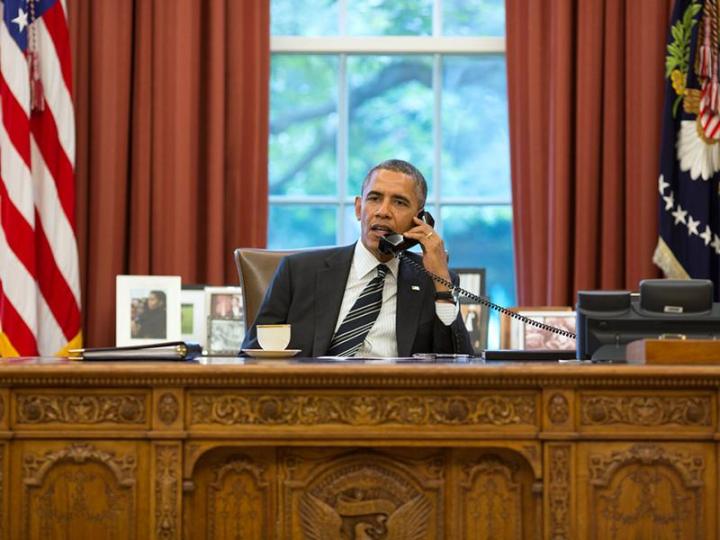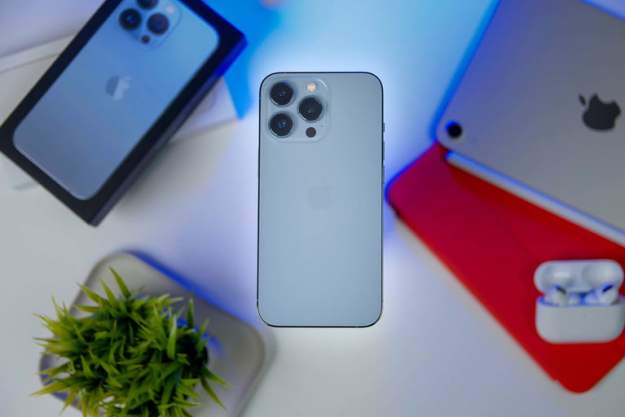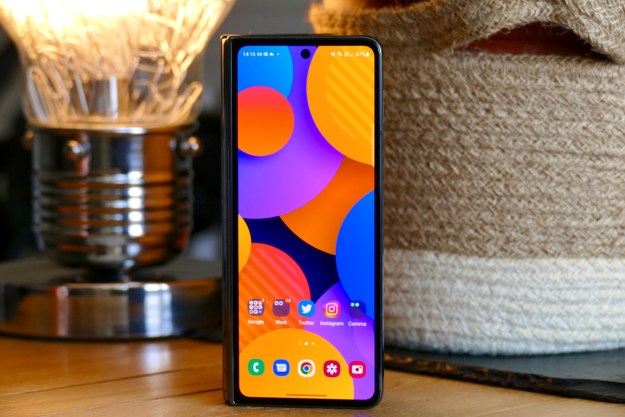
President Obama, if you believe the words that come out of your own mouth, it’s about time you voice your concern over the FCC’s proposal to end net neutrality.
The Federal Communications Commission yesterday proposed new rules that give Internet service providers the power to decide what content moves the fastest on the Web and to charge for access to faster pipes. This means that the online videos and images you get from CNN or Youtube would come in faster and clearer than the content from, say, a friend’s blog or a small organization’s website. The proposed rules basically allow companies with a lot of money to buy the fast lane to the Internet while smaller players get relegated to buffering times.
Tim Wu, a Columbia Law School professor and senior adviser to the Federal Trade Commission, called the proposed regulations a “net discrimination rule.” “…if enacted, it will profoundly change the Internet as a platform for free speech and small-scale innovation. It threatens to make the Internet just like everything else in American society: unequal in a way that deeply threatens our long-term prosperity,” Wu wrote in an article published in the New Yorker.
What’s most surprising about the new rules is not the government’s desire to provide Internet service providers (ISPs) with additional revenue streams while giving everyone else the shaft, it is that the proposal is on the table in spite of Pres. Obama’s repeated statements in support for net neutrality.
President Obama promised a Net neutrality bill if elected
In a 2007 campaign event, before he became president, Obama was asked: “Would you make it a priority in your first year of office to reinstate Net neutrality as the law of the land? And would you appoint FCC commissioners that support open Internet principles like Net neutrality?”
“The answer is yes… I am a strong supporter of Net neutrality,” he replied. “What you’ve been seeing is some lobbying that says the servers and the various portals through which you’re getting information over the Internet should be able to be gatekeepers and to charge different rates to different Web sites…so you could get much better quality from the Fox News site and you’d be getting rotten service from the mom and pop sites… And that I think destroys one of the best things about the Internet- which is that there is this incredible equality there.”
He continued to support it during his first term
His support for Net neutrality legislation didn’t waver when he assumed office. In 2010, a White House blog post read, “President Obama is strongly committed to Net neutrality in order to keep an open Internet that fosters investment, innovation, consumer choice, and free speech.”
The entry lauded the FCC’s proposed basic rules of the road, which then-FCC Chairman Julius Genachowski praised by saying: “The openness of the Internet has enabled unparalleled innovation and job growth, yet we continue to find examples of this freedom being attacked. We have found instances when broadband providers position themselves as gatekeepers to the Internet, and have prevented consumers from using applications of their choice without disclosing what they were doing. We must take action to protect consumers against price hikes and closed access to the Internet—and our proposed framework is designed to do just that: to guard against these risks while recognizing the legitimate needs and interests of broadband providers.”
In 2011, he pledged to veto the opposition’s moves to torpedo the Net neutrality rules that the FCC adopted the year before. Senate Journal Resolution 6, a joint resolution that disapproves the FCC rule, said that the regulations “shall have no force or effect.”
“If the President is presented with S.J. Res. 6, which would not safeguard the free and open Internet, his senior advisers would recommend that he veto the resolution,” the White House answered in a statement.
In January, he said “preserving an open Internet is vital”
In January 2014, a federal appeals court struck down several provisions in the FCC’s Open Internet Rules. This meant that the agency cannot require ISPs to provide Internet service equally. In response to the court defeat, Obama said: “Preserving an open Internet is vital not to just to the free flow of information, but also to promoting innovation and economic productivity … Absent net neutrality, the Internet could turn into a high-priced private toll road that would be inaccessible to the next generation of visionaries.”
He made the statement in response to a White House petition, which requested that he direct the FCC to reclassify ISPs as “common carriers.” This meant that the FCC would have regulatory powers over ISPs. That provision remains in the FCC’s new proposal and is expected to gain opposition from Republican lawmakers.
Obama even voiced Net neutrality support on a Google Hangout
In late January 2014, Obama appeared in a Google Hangout session as part of a “virtual whistle-stop tour.” In response to a Net neutrality question, he said: “It’s something that I’ve cared deeply about ever since I ran for office, in part because my own campaign was empowered by a free and open Internet and the ability for citizens all across this country to engage and create and find new ways, new tools to mobilize themselves. A lot of that couldn’t have been done if there were a lot of commercial barriers and roadblocks. So I’ve been a strong supporter of Net neutrality. The new commissioner of the FCC, Tom Wheeler, who I appointed, I know is a strong supporter of Net neutrality.”
Obama needs to speak up against this FCC bill
With the new FCC proposal coming to light, Obama’s words about Tom Wheeler supporting Net neutrality seem ironic. Wheeler has proposed that ISPs like Comcast should have the ability to ink deals to provide extra fast access to companies who can pay for it, essentially creating a tiered Internet.
The FCC will accept comments on the proposal if the five-member commission (made up of three Democrats and two Republicans) approves the version of the Net neutrality rules. If the proposals progress beyond that, final regulations are expected by this summer.
While the president has yet to comment on the new proposal, the White House said previously that it cannot force the FCC to reclassify broadband service. From a legal perspective, that’s true. In 1987, Ronald Reagan vetoed legislation for the “fairness doctrine,” which required radio and television stations to allocate airtime for the discussion of different views of public importance. Even with the veto, the fairness doctrine remained as FCC policy.
However, it’s hard to believe that President Obama has his hands tied, especially with three Democrats on the commission and an FCC commissioner that he appointed himself.
So we have to ask: President Obama, do you still support Net neutrality?


